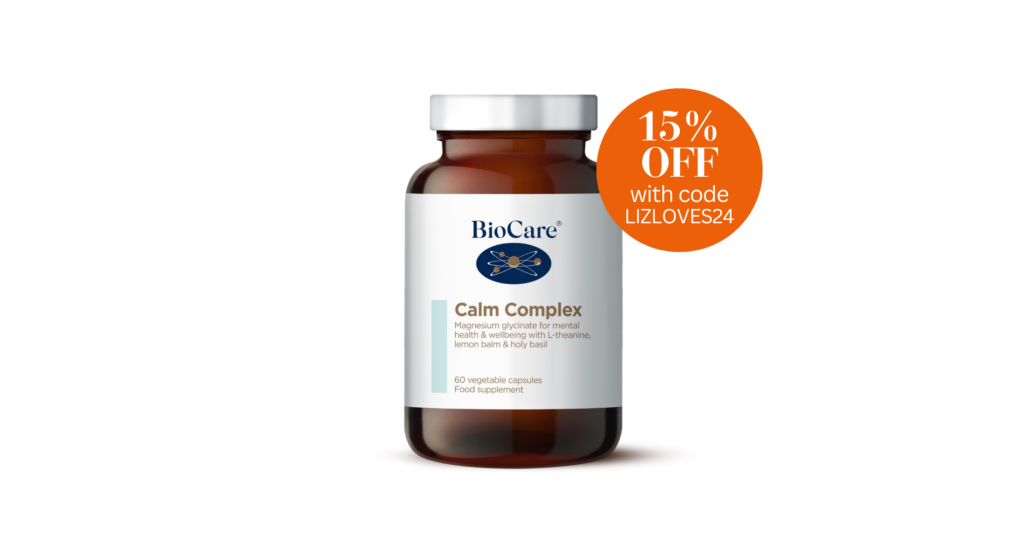The Menopause
The benefits of magnesium for menopause and beyond
Load up on leafy greens. Magnesium is the ultimate menopause mineral, says nutritional therapist and functional medicine practitioner Farzanah Nasser.
What is magnesium?
Central to over 300 bodily processes and enzymatic functions, magnesium is essential for health and wellbeing. It balances blood sugar, supports a healthy immune system and helps to keep bones strong. Not only that, but it also keeps our energy levels up and encourages good mood as well as quality sleep. It’s also been dubbed ‘nature’s tranquilliser’ because it has a positive and soothing effect on the nervous system.
Magnesium is beneficial at any time of life, but especially so in midlife when we may need extra help to keep stress under control and secure a good night’s sleep.
Are we getting enough magnesium?
Magnesium is part of chlorophyll, the green pigment that gives plants their colour. This is why leafy green vegetables are so often cited as a good source of magnesium. But we can find magnesium in many other foods such as lentils and beans, nuts and seeds, fruits (such as bananas) and some fish, such as salmon and mackerel.
If we’re eating a diversity of plants foods we will be getting some magnesium in our diet. That said, levels of magnesium in our food have decreased by about 10% over the last 80 years, as soils are not as nutrient-dense as they used to be. To make matters worse, processed foods are taking up more and more space in the average UK diet and these rarely contain this essential mineral. The reference nutrient intake (RNI) for magnesium is 270mg per day for females aged 19-64, and most of us are not hitting this target.
It’s also important to pay extra attention to our magnesium intake if we’re feeling overwhelmed, as stress depletes our magnesium stores.
How does magnesium support a healthy menopause?
Magnesium is essential for healthy muscles, nerves, bones and metabolism. If we don’t get enough in our diet over time, we may be at higher risk of health problems such as migraines, high blood pressure, diabetes and osteoporosis. During menopause we may also want to be aware of the following benefits:
Heart health
Research shows estrogen protects our cardiovascular health, for instance, and we lose this protective effect as levels of estrogen decline during menopause (if we don’t supplement hormones with HRT). Here, magnesium may lend a hand as some studies have found it can protect blood vessels, relax smooth muscle cells and promote good blood flow.
Balanced blood sugar
As we transition into menopause, we can become more insulin-resistant. Magnesium helps to support the function of insulin and encourages sugar transportation out of the blood and into the cells. This means we feel better after we eat (with less of a blood sugar roller-coaster) and have more sustained energy levels throughout the day. Keeping blood sugar levels under control becomes increasingly important as we age (even as it becomes more challenging), as this helps reduce inflammation and protects our long-term health.
Brain defence
In 2023, a study showed that daily supplementation of magnesium (550mg) had an anti-inflammatory effect in perimenopausal and menopausal women – this protected against brain shrinkage, improved cognitive function and may help to prevent dementia.
Keep your cool
Magnesium can also promote a happy menopause by supporting our adrenal glands. We know that our ovaries stop producing estrogen at the point of menopause, but our adrenal glands are still able to produce sex hormones. These glands also make our stress hormones. In fact, if they are busy producing stress hormones (cortisol), there is less reserve to make sex hormones. By helping to support adrenal function and keep stress under control, magnesium can therefore allow for a smoother transition into menopause.
How can we increase our magnesium levels?
Aim to get as much magnesium through food as possible and remember that we’re aiming for 270mg a day. Listed below are the levels found in common foods:
- Pumpkin seeds (100g) – 262mg
- Spinach (100g) – 79mg
- Mackerel (100g) – 60mg
- Black beans (1/2 cup) – 60mg
- Dark chocolate (25g) – 59mg
- Avocado – 58mg
- Peanut butter (2 tbsp) – 49mg
- Almonds (15) – 40mg
- Medium banana – 32mg
- Oats (100g) – 29mg
Supplements can help to keep magnesium levels topped up – particularly during times of stress or if we’re eating more processed foods than we’d like.
The best magnesium supplements for menopause
BioCare Calm Complex | £30.76
Liz loves this nutritionist-approved blend of lemon balm, L-theanine, holy basil, and magnesium glycinate for mental health & wellbeing, relaxation, and sleep. Use code LIZLOVES24 for 15% off.
The Naked Pharmacy Marine Magnesium | £11
Naturally-derived magnesium extracted from purified seawater. This menopause-friendly supplement also contains a prebiotic for improved gut health. Use code LIZLOVES for 20% off.
Better You Magnesium Sleep Body Spray | £13.95
If restless legs are keeping you up at night, try this magnesium and essential oil blend for a restful night’s sleep. Use code LIZLOVES for 15% off.








